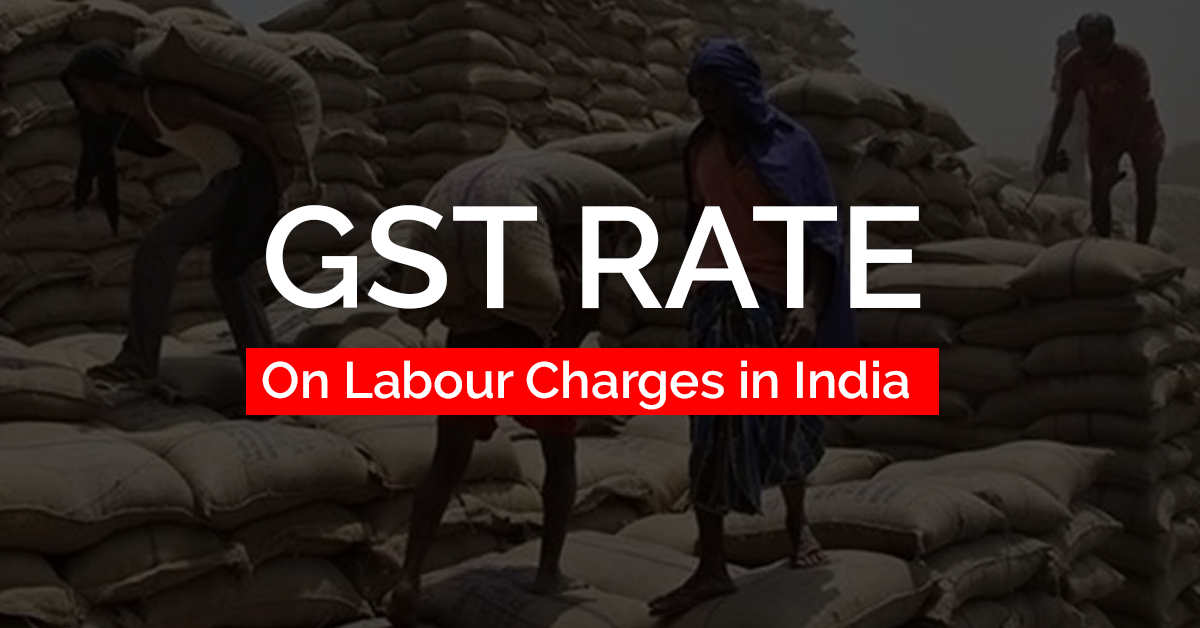Is GST levied on labor charges? GST, or Goods and Services Tax, is levied on all services and goods, including those provided under a labor contract. In the construction industry, a labor contract is a specific agreement between two contracting parties in which the contractor agrees to do some work with specific conditions and terms, and the owner supplies the materials needed to carry out the contract. In GST terminology, this type of GST on labor charges contract is known as a pure labor contract or a works contract.
A labour contract containing only labor service: A labour contract containing only labour service is known as a pure labor contract in GST terms. Under the terms of such a contract, the service provider is not permitted to use any materials procured by them in providing the labour service as specified in the HSN code for labour charges.
A labour contract that includes both material supply and labour: A works contract is a type of labour contract that includes both material supply and labour. The works contract is defined in Section 2(119) of the 2017 CGST Act.
Applicability of GST on Labour Charges
Unless specifically exempted by a notification passed by the Government and recommended by the GST Council, GST applies to all services and labour contracts. All monetary transactions, except for securities or money changed in any mode for the conversion of securities, are included for services under GST on labour contractors or under the GST laws.
In the case of a pure labour contract, GST on labour supply applies to the supply of labour services such as providing workers to do the job contracted or the supply of labour force. Certain exemptions and considerations apply to both the pure labour contract and the pure works contract, which are discussed further below.
Supply Value in Computing GST on Labour Charges
The GST on labour charges is calculated under the GST Act using the transactional value as the supply value. Except for CGST, IGST, and SGST, the transaction value typically denotes the total value of the transaction, including all expenses, duties, and taxes levied under various statutory laws. In practise, the person contracting under a labour contract must bear several expenses on behalf of the labour contractor and his supplies.
Take a look at this example to see what we mean. Assume Mr Shyam, the labour supplier, signs a pure labour contract with Mr Raj. Mr Shyam is responsible for providing people or labour to complete the work outlined in the contract, while Mr Shyam is responsible for providing all materials. Mr Shyam, on the other hand, does not deduct ESI or EPF while supplying labour to Mr Raj, who is required to do so. What should the transactional value be for GST purposes, and what charges should be included?
- Assume the fundamental labour supply is equal to Rs.10000.
- At a 10% service charge, the total is Rs.1000.
- At a rate of 12%, the EPF deduction is Rs.1200.
- The ESI deduction is equal to Rs. 475.
- The entire amount spent now is Rs.12675.
The total amount is then taxed at a rate of Rs.2281.50 (12675*18%). As a result, it is only natural to include all of these charges when calculating the actual supply value or transactional value. If you wish to know more about cloth hsn code and gst rate – click here.










